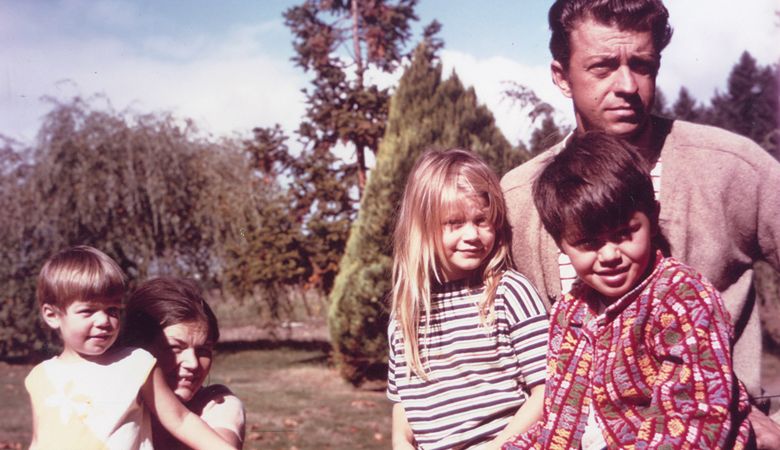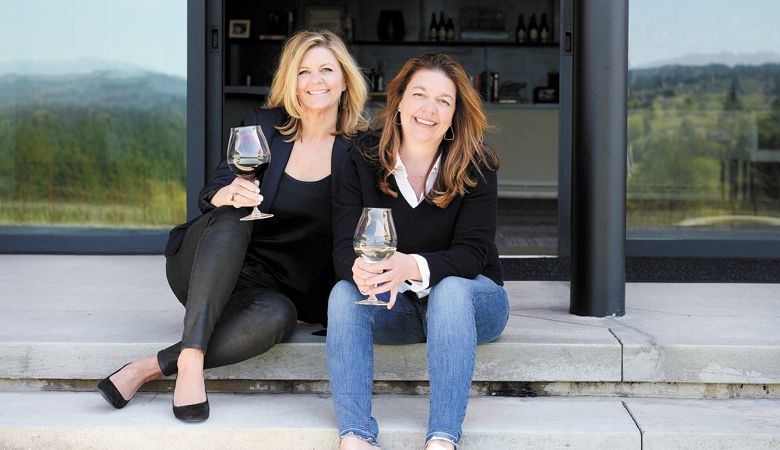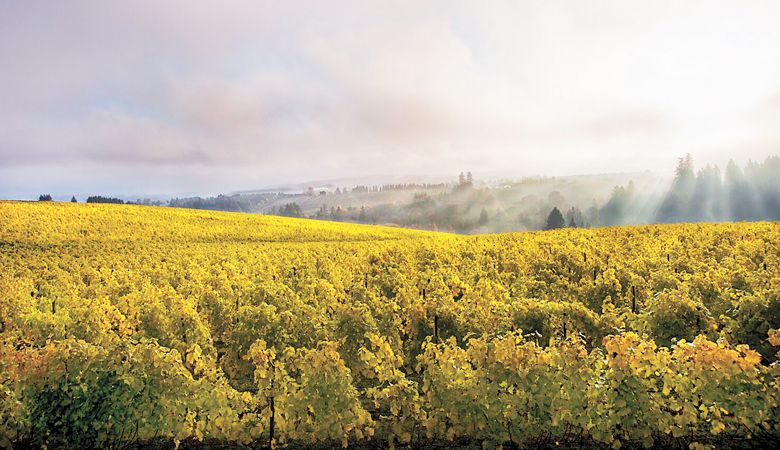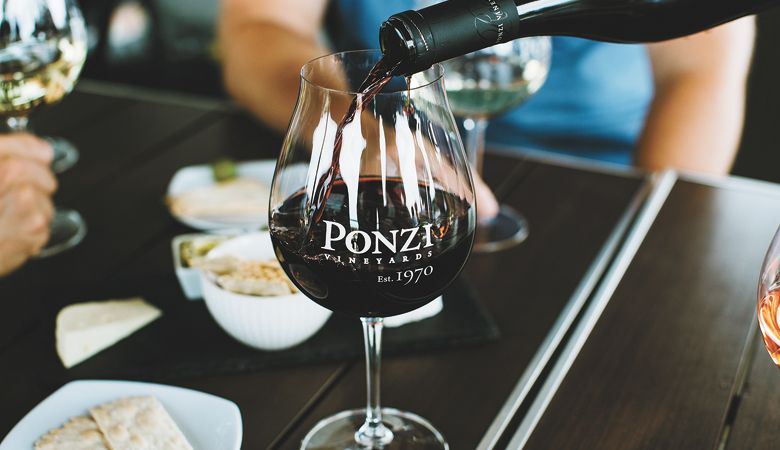Legacy of Family
Ponzi celebrates five defining decades
It’s not exactly the half-century bash Ponzi Vineyards might have scripted, but the pioneering Oregon label is celebrating nonetheless.
The Willamette Valley winery turns 50 years old this year. Prior to the pandemic, there were celebratory plans involving special releases, large gatherings and festive tastings. Ponzi still plans to toast the milestone, albeit in a reformed fashion in keeping with the new normal. While unknowns loom large and the wine industry attempts to survive this difficult stretch, there are some certainties. For Ponzi, it’s the winery’s legacy, running deep and greatly impacting the Pacific Northwest wine conversation.
There are many chapters to the Ponzi winery story. From finding a New World home for lesser-known Old World grape varieties like Arneis and Dolcetto, to promoting diversity in the workplace and helping Chardonnay’s renaissance in the Willamette Valley, the company has always been both involved and instrumental. Anna Maria Ponzi, part of the winery’s second generation and now president of the company, offers Steve Jobs-like wisdom related to the label’s success.
“I think it’s important to continue to think differently than others, to avoid getting caught up in trends and mainly continue to trust your gut,” she says. “You have to be brave enough to try new things but ensure what you do aligns with your long-term goals.”
Anna Maria calls it a happy medium between exploration and experience. More time in the game affords confidence, which in turn can lead to additional freedom. “It’s a constant balancing act between being true to tradition while still remaining fresh.”
Founders Dick and Nancy Ponzi moved to Oregon in the 1960s. They settled on a 20-acre spot just beyond the growth boundary in the suburbs southwest of Portland with the intent of bringing a bit of Burgundy to the area. They first planted in 1970, the same year the label was created. Back then, there were just a handful of producers in the Valley, including the Letts, Eraths and Campbells.
In 1976, when Neil Goldschmidt was mayor and the Blazers kick-started their world championship run in the Memorial Coliseum, Ponzi introduced its Pinot Noir to Portland consumers — marketing approximately $10 a bottle at the time. Two years later, the family planted Pinot Gris on the estate. By 1984, the family entered the craft beer realm, eager for something more in the way of financial turnaround, compared to the relatively slow and very perennial wine calendar. They founded Bridgeport Brewing Company, which helped popularize the now-ubiquitous Northwest IPA.
About that time, the second generation of the Ponzi family began assuming roles at the estate. The only son, Michel, started working for the business right after college, around 1985 — he oversaw operations until 2012 when he left the company to pursue other ambitious in Italy. In the early ’90s, daughters Anna Maria and Luisa joined the fray — the former taking the sales and marketing reins; the latter leading the cellar after studying enology in Beaune. Luisa was the first American woman to be handed the Certificate Brevet Professionnel D’Oenologie et Viticulture. Her dad was making headlines, too. In 1988, Dick was dubbed “Oregon’s best producer” by The Wine Advocate.
Meanwhile, Nancy was starting ¡Salud!, which would become the state’s leading auction in the name of healthcare for vineyard workers. The winery continued to innovate and expand, adding a culinary center and tasting room in Dundee, and broadening the portfolio with the likes of Dolcetto and dessert wine. In 2008, the Ponzis broke ground on a new winemaking home, a sleek gravity-flow space designed by engineer-turned-winemaker Dick Ponzi. Five years later, an uber-modern tasting room, designed by Anna Maria’s husband, Brett Fogelstrom of Fogelstrom Design Build, joined the property. The original estate still serves as a great reminder of how approachable wine country is to the Portland area; it’s now home to Hamacher Wines, run by Luisa’s longtime winemaking husband, Eric Hamacher.
Today, the wine landscape appears quite different from 1970: Ponzi now oversees 140 acres of vineyard, all certified by LIVE; the winery boasts an elegant event space, The Laurelwood, which hosts a variety of wine experiences; and the brand remains very visible with distribution all over the nation.
There’s much to be proud of, but Anna Maria is quick to emphasize adhering to core values and responsible growth. Risks were taken but standards never sacrificed en route. The brand has kept a close eye on sustainability, for instance, holding fast even when the economy made it more difficult. She says the major challenge lying ahead is global warming. “Fortunately, we’ve already made adjustments by planting at higher elevation sites and implementing our clonal massale technique,” Anna Maria adds.
She points to the integrity of Pinot Noir as well, especially now with so many players in the region. “As a second-generation winegrower, I know firsthand how much work went into building our stellar reputation as a quality winegrowing region,” she says. “Change is inevitable, but I feel it’s important that our community — regardless of individual brand goals — work together to maintain the quality standards of the region.”
What does the next half-century hold for Ponzi Vineyards? If the first 50 years are any indication, it will be a busy, family-first affair devoted to industry breakthroughs, increased awareness and a general elevation of the Oregon wine status, per its deep-rooted modus operandi. The now sister-owned company foresees more varietals entering the Valley and an enduring outside interest from locals and tourists alike, drawn to the area’s one-of-a-kind food and wine culture.
The script has not been written but remains in the custody of a trailblazing family with a fabulous résumé. Whatever happens, the Ponzis will almost certainly be fully engaged. You don’t just turn 50, practically ancient in the relatively young Oregon landscape, without some knowhow and new initiatives, not to mention reliably good wines.
“Every company needs to stay relevant, but it also needs to bring its supporters along with it,” Anna Maria says. “So any changes made need to make sense for the company and be done with careful thought.”














